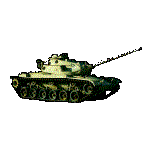
|
|

|
|
The Moon Is Down
by
John Steinbeck
The Moon Is Down
|
|
The Moon Is Down, chapter 1
Where were the local troops and what happened to them?
Why does Captain Bentick come before the colonel?
What do we get to know about Mr. Corell?
What is the relationship like between the Mayor and his wife?
“And yet several times in her life she had seen the stars.”
How did the captain know that the Mayor had two guns?
Why didn’t people know what had happened in other parts of the country?
How did the Mayor react when he learnt about Corell?
What did the invaders (Germans?) want in this town?
What was the invaders' (German?) idea of avoiding trouble in an occupied town?
What does the Mayor imply about the difference between inhabitants (Norwegians) and invaders (Germans)?
Why did the invading (German?) staff want the Mayor’s house?
What did Annie do?
What is the result of the negotiations?
What contrast is shown
between the lives of the invading
(German?) soldiers and the
inhabitants (Norwegians)
when the Mayor and the colonel discuss Annie’s action?
-Explain the following words in English, then translate:
occupy,
rifle, a
glade, physician, mayor, impertinent, a
profound
man, tickle, shaggy,
staff,
wounded, elect, shotgun, pinch, harsh, barrel, rigid, reward, appoint, quit,
obey, fierce
…and
don’t forget, if and whenever you
get stuck with a difficult word or a phrase, look it up.
You’ve always got a PC nearby these days so there you are, http://swengelsk.com section “Ordlistor (Lexikon)”
![]()
What’s
about to take place in Mayor Orden’s palace?
Describe
the conversation between Annie and Joseph.
What
is the Mayor’s problem do you think ?
What does
Molly Morden want ?
What
does the Mayor answer ?
The
Mayor’s opinion of the invaders (the Germans) is made
clear once and for all in the speech he makes in front of Lanser.
What
does he (the Mayor) say ?
Explain
the following words in English: sentry, trial, sentence, hush, comprehend,
gloomy, miner, whip
NB. If there is time left over I would suggest you focus on a difficult passage in these chapters and explain to each other the contents.
Don’t refrain from translating a few lines if necessary!
The Moon Is Down, chapters 5 & 6
Describe how the war went on and how the
Norwegians defended themselves.
What were the effects (of the Norwegians behavior) on the soldiers ?
How does Tonder react?
Tonder thinks the invading soldiers (the intruders) have been deceived by their leader.
Why?
How?
What steps had Captain Loft taken to make the miners work better?
Tonder really doubts that they, the invaders (the Germans?) are winning the war.
Why?
How is that shown?
What does Tonder mean by saying “Flies conquer the flypaper” ?
What does Annie come to tell Molly?
Describe what happened between Molly and Tonder!
What were the brothers going to do?
What did Mayor Orden want the brothers to do?
How can we understand that Annie is suspicious of Molly because of the soldier she sees?
What did Molly do?
What makes Molly do what she did?
Do you find her action natural after her first meeting with Tonder?
![]()
(What? Why? How?)

Explain
the 10 words you found most difficult in this passage
(in English, if you're
a native Swede, otherwise in Swedish of course)
NB.
If there is time left over I would suggest you focus on a
difficult
passage in these chapters
and explain to each other the contents. Don’t
refrain from translating a few lines if necessary!
The Moon Is Down, chapters 7 & 8
Describe how people finally got their weapons.
Does Lanser think they will be able to stop people from picking up the dynamite?
Explain his opinion!
In front of Prackle, Lanser shows that in spite of all
he is a soldier. How?
What does Correl want to do?
What does Lanser say about
his method?
The Mayor describes himself as “a not very brave man”, but he is certainly no coward.
In what way is he brave?
What is John Steinbeck’s idea in this novel?
In some
passages this idea appears clearly enough.
Can you find some?
What do you find good and bad in the book?
Describe the following characters/ persons: Major
Hunter, Captain Bentick, Lieutenant Tonder, Colonel Lanser and Mayor Orden.
Explain the following words in English: avalanche,
squad, rail/-s, hover, moist, hiss, ration, scallop, choke, remorse, traitor,
curfew, shears and core, again!
Some of these words may have more than one meaning.
Explain the following words in English by putting them into English sentences.
Use
one word per sentence.
Once done with your sentences, give the Swedish equivalent sentence!
|
English |
Write
your Swedish sentences on a paper copy here. |
|---|---|
|
|
|
|
poise |
|
|
deserve |
|
|
|
|
|
|
|
|
pick |
|
|
cot |
|
|
|
|
|
wriggle |
|
|
treachery |
|
|
furlough |
|
|
|
|
|
court |
|
|
impartial |
|
|
avalanche |
|
|
|
|
|
trench |
|
|
troops |
|
|
knitting |
|
Keep
working on your vocabulary
and do try to learn the major portion of the specific
vocabulary necessary for understanding this story,
or the prospects of grasping
the ideas of this story will greatly diminish.

As
one
student reported: -"As I
got into the lives of the characters in this book, I started caring. Even the
soldiers who took this town are strong characters, men doing their jobs, and I
started feeling sympathy for them as well.
I'm sorry to say that I read this book in just under 2 hours, a pretty good
speed for me. I feel almost guilty that I didn't savor every moment, like a fine
wine or a good Tom Robbins novel. I was captivated by this war torn hamlet and
wish that I could have spent more time there. I even wish that Steinbeck had
made it longer so that I could hold on to this beautiful book for a few more
hours.
This book is so absorbing, you feel weak and threatened, you feel as if you,
too, are trapped in this town. After finishing the book, it felt almost like
waking up. I had that eerie feeling that I had been somewhere else for a couple
of hours. Indeed, I had been."-

Explain why you think this may or may not , can or could not, happen in real
life!
Give reasons for your arguments about armed conflicts, whether or not you're pro or against!
How come there've always been armed conflicts throughout history and mankind?
Give
reasons and present facts supporting your opinion.


 |
 |
|
|
|
 |
|
 |
|
|

© Swengelsk, KB ® webmaster |
|
|
 |